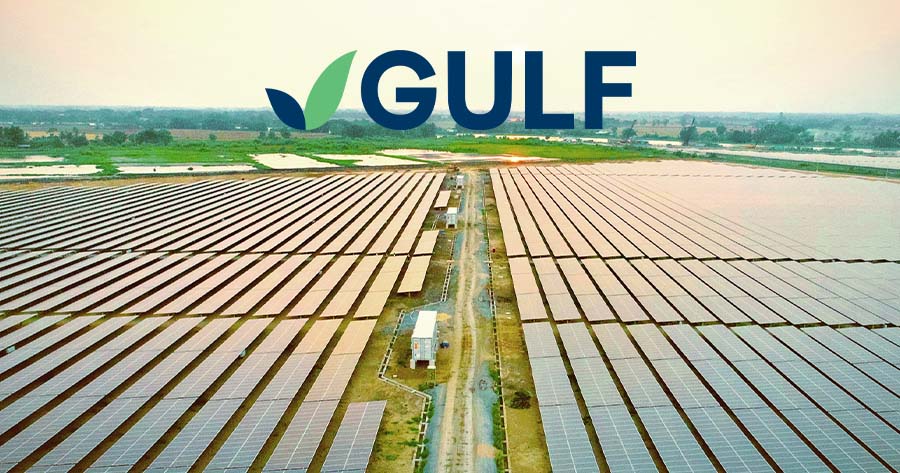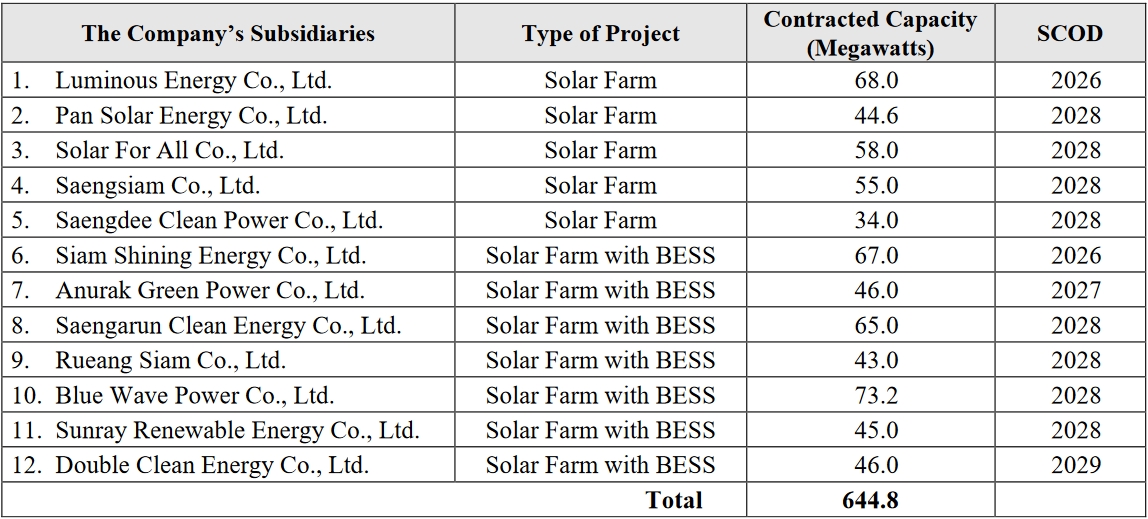Gulf Energy Development Public Company Limited (SET: GULF) has announced that it signed additional 12 development solar projects with the Electricity Generating Authority of Thailand (EGAT) with a total contracted capacity of 644.8 megawatts.
Reference is made to GULF’s notification to the Stock Exchange of Thailand on October 18, 2023, regarding the execution of the Power Purchase Agreements with the EGAT for the development of a total of 12 solar farms and the solar farms with battery energy storage systems projects. The total contracted capacity of the projects is 649.3 megawatts, with a scheduled commercial operation date (SCOD) between 2024 and 2025.
The company would like to provide notification to the Stock Exchange of Thailand that on December 20, 2023, a group of subsidiaries in which the company indirectly holds 100% equity stake through Gulf Renewable Energy Company Limited have entered into 25-year Power Purchase Agreements with EGAT for the development of an additional 12 solar projects with a total contracted capacity of 644.8 megawatts.
This comprises 5 solar farms with a total contracted capacity of 259.6 megawatts and 7 solar farms with battery energy storage systems (BESS) with a total contracted capacity of 385.2 megawatts. The projects have a scheduled commercial operation date (SCOD) between 2026 and 2029, which comprise of:
Currently, the company has already signed the Power Purchase Agreements with EGAT to develop 24 solar power projects in Thailand, with a total contracted capacity of 1,294.1 megawatts, comprising of 13 solar farms projects with a total contracted capacity of 652.9 megawatts and 11 solar farms with battery energy storage systems (BESS) projects with a total contracted capacity of 641.2 megawatts and a scheduled commercial operation date (SCOD) between 2024 and 2029. The solar farms and the solar farms with battery energy storage systems will receive a Feed-in-Tariff (FiT) rate of 2.1679 Thai Baht per kilowatt-hour and 2.8331 Thai Baht per kilowatt-hour, respectively, throughout the contract term.
The purchase of electricity from the Projects will help reduce fuel price volatility and alleviate both household and industrial sectors’ electricity cost burden by providing access to electricity at a low price throughout the contract period, as the Projects have lower electricity production costs in comparison to the current average electricity price.





